analysis Asia
'Growing appeal' for Malaysian states to join Sabah, Sarawak in push for greater powers, but will it work?
On Sep 15, a day before Malaysia celebrated 62 years as a federation, a group of non-governmental organisations and a think-tank publicly urged peninsular states to team up with Borneo states to demand more power from the federal government.
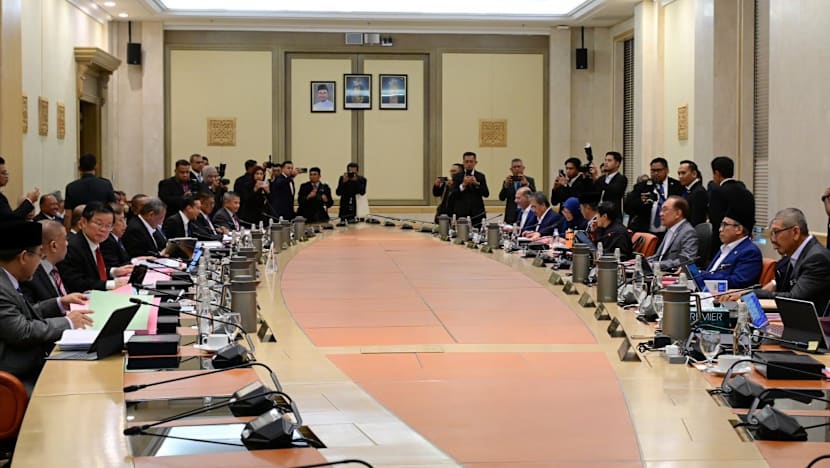
Leaders from Malaysia's 13 states attend the 146th Menteri Besar and Chief Ministers meeting, chaired by Prime Minister Anwar Ibrahim (third from right), in Putrajaya on Jul 14, 2025. (Photo: Facebook/Shamsul Azri bin Abu Bakar)

This audio is generated by an AI tool.
KUALA LUMPUR: Malaysia’s peninsular states could be more willing to consider a recent proposal by non-governmental organisations (NGO) and a think-tank to band together with Sabah and Sarawak to push for more powers in the country’s federal system, analysts believe.
This comes on the back of how these peninsular states have shown growing momentum in a movement towards decentralisation in recent years, the analysts told CNA, noting that the likes of Penang and Johor have asked for more tax revenues to be returned to their state coffers.
Decentralisation, where states in a federation are given more powers over revenues and administration in areas like education and healthcare, will allow the states to develop more efficiently and sustainably, the experts said.
Aligning their demands with Sabah and Sarawak - two states which already enjoy some autonomy in areas like immigration and education, but have long pushed for greater control under a legal document outlining the formation of Malaysia - could streamline negotiations with the federal government on a more comprehensive and well-rounded agreement, the analysts added.
But the federal government, which might publicly acknowledge room for discussion, is likely to be wary of a slippery slope in granting state-level concessions so as to preserve power at the centre, the experts warned.
Challenges include fiscal limitations at the federal level, a disparity between what the West and East Malaysian states could be entitled to, and a lack of coordination among the peninsular states, they said.
“Any incumbent federal government does not have great incentive to want to give away power,” Tricia Yeoh, from the School of Politics and International Relations at University of Nottingham Malaysia, told CNA.
“But again, the argument here is that (otherwise) it's actually unsustainable especially for states, because their sources of revenue are very limited.”
AN EAST-WEST UNITED FRONT?
On Monday (Sep 15), a think-tank and several non-governmental organisations proposed for peninsular states to form an "alliance" with Sabah and Sarawak to collectively negotiate with the federal government for a national decentralisation agenda that would devolve more powers to all states.
The joint statement, signed by the Institute for Democracy and Economic Affairs, Projek Sama, Bersih, Tindak Malaysia, and Rise of Social Efforts, was issued one day before Malaysia celebrated 62 years of its formation as a federation.
The decentralisation agenda would come under a proposed Malaysia Agreement 1963+ (MA63+), an upgraded version of the legal instrument signed in 1963 that became the basis for the formation of the Federation of Malaysia.
The original agreement granted more autonomy to Sabah, Sarawak and Singapore in joining the Malayan states as a federation. Singapore left the federation in 1965.
While Sabah and Sarawak currently enjoy some degree of autonomy, they have consistently pushed for their full rights under MA63 to be granted, especially in areas like petroleum and tax revenue.
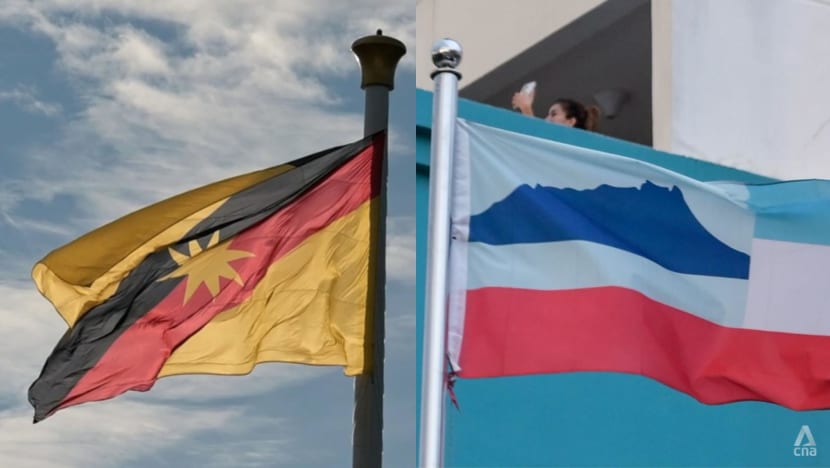
There have been similar calls on the peninsula.
In March 2024, Terengganu - an oil-producing state - chided the federal government for what it said were delays in oil royalty payments, with its Chief Minister Ahmad Samsuri Mokhtar accusing Putrajaya of “exerting pressure” on the opposition-controlled state.
Then in June 2024, Johor Regent Tunku Ismail Sultan Ibrahim said the southern state did not belong to Malaysia but was a partner in the federation, and expressed hope that Johor could get a return of 20 per cent to 30 per cent of its state revenue. Tunku Ismail reiterated similar calls in July this year.
And in June this year, Penang Chief Minister Chow Kon Yeow repeated calls for Putrajaya to proportionately share between 10 per cent to 20 per cent of the state’s tax revenues. The federal government had previously rejected his proposal, he said.
Penang, one of Malaysia's richest states, has also set up a state legislative committee on federal-state relations that has called for decentralisation.
Sabah Deputy Chief Minister Jeffrey Kitingan told CNA that he would support collaboration between Borneo states and their peninsular counterparts.
“Malaysia today suffers from the overcentralisation of legislative and executive powers. This slows down our national growth, creates unnecessary costs, and fosters corruption,” said Kitingan, a vocal proponent of MA63 issues.
“Decentralisation will benefit not only Sabah and Sarawak, but the whole federation.”
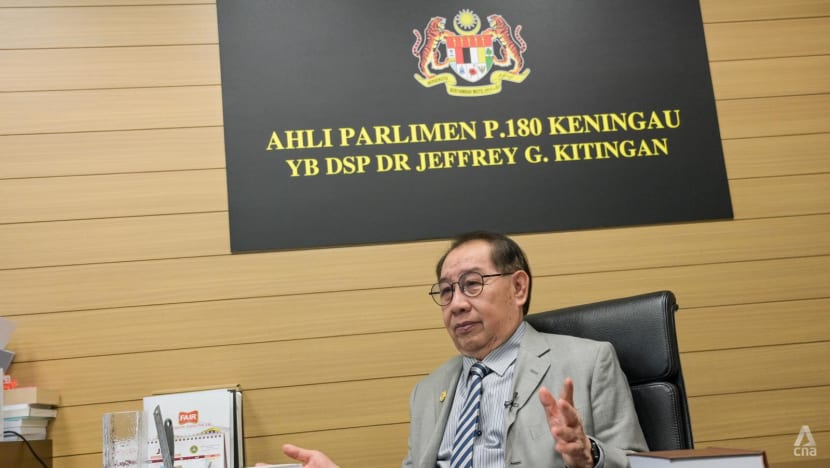
So far, the federal government and most state governments have not responded publicly to the latest proposal by the five organisations.
"The true determinant of whether Sarawak and Sabah would get substantially more powers is the degree of support from the Malayan states, which in turn hinges on what these states would get," Wong Chin Huat, co-founder of Projek Sama that advocates for institutional reform, told CNA.
"From Putrajaya's perspective, preventing an inter-state east-west united front is good in the short run because it minimises concessions to be made to both Borneo and Malayan states and preserve the pretense of a strong centre.”
CNA has contacted the offices of the chief ministers of Terengganu and Penang for comment. CNA has also reached out to representatives for Johor Chief Minister Onn Hafiz Ghazi as well as Sarawak Premier Abang Johari Openg.
“To my knowledge, no peninsular chief ministers has yet expressed interest or intention (on working with Sabah and Sarawak) mainly due to constraints of a highly centralised party system,” Wong said.
PENINSULAR STATES MAKING DEMANDS
In its statement, the five organisations called on the premier of Sarawak, the chief minister of Sabah, and the chief minister of any other state to forge a consensus on MA63+ before presenting it to the federal government.
They also suggested forming a new inter-governmental committee to negotiate constitutional amendments in areas like allocation of parliamentary seats, legislative power assigned to or shared between the federal government and state governments, as well as grants, taxes and fees.
But the groups maintained that Sabah and Sarawak should still enjoy more powers than the peninsular states, in line with the original intention of MA63.
Sabah and Sarawak have always seen strong support from within the states in their push for more powers in the federation, and there could be “growing appeal” on the peninsula for the same, particularly in poorer states that feel overlooked by Putrajaya, a partner at a strategic advisory firm told CNA.
He was referring to the proposal that Sabah and Sarawak should still enjoy more powers than the peninsular states even if they should band together.
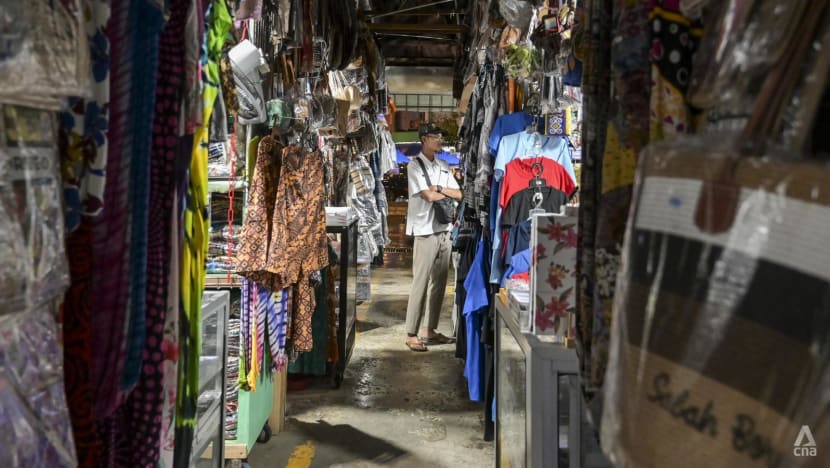
“While the federal government announces billions in foreign investments, ordinary Malaysians continue to feel the pinch of rising living costs, deepening the perception of a disconnect between the capital and rural Malaysia,” said Asrul Hadi Abdullah Sani of ADA Southeast Asia.
The fact that the opposition controls some of the poorest states on the peninsula, and that Prime Minister Anwar Ibrahim continues to withhold allocations for opposition Members of Parliament (MP), could further fuel calls for greater decentralisation, he added.
Anwar has advised opposition MPs to reach a consensus on any requests regarding allocations, before meeting with Deputy Prime Minister Fadillah Yusof, who has been given the mandate to handle the matter.
Among Malaysia’s 13 states, the opposition-controlled states of Terengganu (2.4 per cent), Kelantan (1.7 per cent) and Perlis (0.4 per cent) contributed the least to the national gross domestic product (GDP) in 2024, according to official statistics released in July.
Kedah, the only other opposition-controlled state, was fifth-bottom with a contribution of 3.27 per cent, ahead of Melaka.
On the other end of the spectrum, Selangor (26.2 per cent) was the top contributor to Malaysia’s GDP in 2024, followed by Johor (9.6 per cent), Sarawak (9 per cent) and Penang (7.4 per cent).
Richer states such as Selangor, Johor and Penang - often dubbed the “engines” of the country’s economy - might also want to push for the same demands as Sabah and Sarawak, Asrul Hadi said.
“These states contribute disproportionately to the national economy and increasingly feel that a greater share of their revenue should be returned,” he added.
“They are also likely to press for greater fiscal autonomy and policy space, particularly in economic planning and infrastructure, in line with their economic weight.”
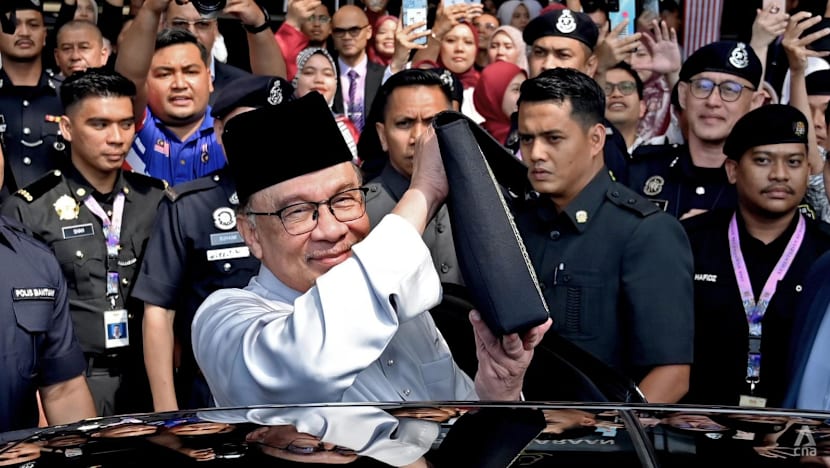
Under Malaysia’s Federal Constitution, the federal government is authorised to collect tax from income, profits, property, trade and other sources, while states overwhelmingly depend on revenue extracted from the commercial exploitation or sale of land.
This meant that states are constantly looking to exploit their natural resources, such as rare earths or forests, and reclaim more land for sale to maximise their revenue - moves that have grave environmental implications, Yeoh said.
“Especially in the last one to two years, we started to see a lot of demand for greater fiscal and administrative autonomy from various state governments across Malaysia, not just in Sabah and Sarawak,” she added.
“Penang and Johor are the more vocal ones. And then of course you have Kelantan, Terengganu and to some extent, Selangor. The others are quieter, but actually they also share concerns; they just haven't voiced it out.”
Lee Hwok Aun, co-coordinator of the Malaysia Studies Programme at Singapore’s ISEAS-Yusof Ishak Institute, noted in a 2024 commentary that under the current system, Putrajaya “enjoys 10 times more revenue than the 13 state governments, and shares precious little”.
Lee told CNA that all states would presumably “take an interest” in a common platform to make more demands of the federal government, and welcome devolution of functions and expansion of revenue.
But if the states’ negotiations were focused on natural resources and state enterprises, for instance, it would be difficult to agree on a “fair outcome” as those without such endowments would miss out, Lee said.
“A general reform such as statutory sharing of tax revenue - especially consumption tax which is more evenly distributed across the regions - holds out a better promise of consensus,” he added.
“I think the peninsular states need to coordinate among themselves first, not so much to close ranks against Sabah and Sarawak, but to find common ground on collaboration.”

CAN SABAH AND SARAWAK TAKE THE LEAD?
Even so, a major challenge with a nationwide state alliance is that Sabah and Sarawak could assert they are already entitled to more power than the peninsular states under the Federal Constitution to begin with, Yeoh said.
“They might feel that, ‘Why should I have the other states here, when actually I'm the bigger brother in that sense?’ But they need to think about the value and benefit that will be derived for them,” she said.
While Kitingan, the Sabah deputy chief minister, sees “merit” in the MA63+ idea, he stressed that this can only come after full implementation of MA63.
“Sabah and Sarawak already have an international agreement and constitutional rights that must first be honoured which the peninsula doesn’t have,” he said.
“Until MA63 is fully implemented then we can talk about anything beyond it. Any new framework will be premature.”
Projek Sama’s Wong said that the two Borneo states are “best positioned” to coordinate an alliance with the peninsular states on negotiations with the federal government, suggesting that an inter-state summit organised by either would likely be attended by peninsula chief ministers - especially those from opposition parties.
“For that to happen, Sarawak and Sabah must see that not leading the peninsular states and leaving them to be represented by Putrajaya is exactly why most Borneo demands face deep resistance and various reasons of delays,” he said.
“Sarawak and Sabah must think more strategically and boldly if they want more power.”
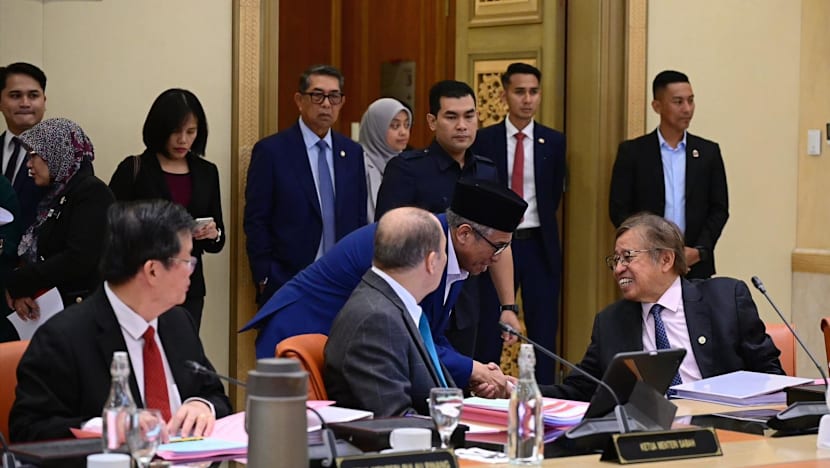
Still, Asrul Hadi believes the federal government would want to avoid setting a precedent that encourages other states to make similar demands as Sabah and Sarawak.
“It is very unlikely that Putrajaya will take a firm public stance (on the latest proposal). Instead, it is more likely to say it is open to discussion and negotiation, a position that will probably hold until the next general election,” he said.
“Mounting federal debt will also make Putrajaya more cautious about devolving fiscal powers, as it fears losing control over revenue streams needed to service national obligations.”
As of the end of June 2025, Malaysia’s national debt stood at RM1.3 trillion (US$308.9 billion), up from RM1.25 trillion at the end of last year. Fiscal deficit reduced from 5.5 per cent of the GDP in 2022 to 4.1 per cent last year, and is projected to fall further to 3.8 per cent in 2025.
This is in line with the government’s commitment to achieving a fiscal deficit target of below 3 per cent of GDP, and keeping the debt-to-GDP ratio under 60 per cent in the medium term, Deputy Finance Minister Lim Hui Ying told parliament in July.
Yeoh from University of Nottingham Malaysia highlighted that states must be “reasonable” in how they come up with their demands, with proper projections and modelling to justify additional fiscal requests.
As local governments understand their areas the best, decentralisation would also allow them to unlock new areas of development that could benefit Malaysia as a whole, she said.
“You need to balance between what the state gets out of it and the national development of the entire country,” she added.
In June last year, government spokesperson and Communications Minister Fahmi Fadzil said Malaysia was formed with the agreement of every state based on the principles of federalism, which was a core of the constitution.
“The development and progress of the country is based on the strength of the federation and all the states,” he said in a statement three days after the Johor Regent Tunku Ismail called for the federal government to return more of the state’s revenue.
“Therefore, the Federal Constitution is the basis that guarantees the rights of the states and determines the relationship between the federal government and state governments.”
According to Yeoh, Fahmi’s “weak” statement showed that decentralisation was not top of the federal government’s agenda.
“But again, hopefully the federal government has to see it from a less threatening point of view,” she said.
In 2025, Anwar chaired at least two meetings involving his federal ministers, government officials and leaders of the 13 states, the latest in a series of official federal-state forums.
Issues discussed include state development plans, efficiency of federal government services and ownership of state land.
ISEAS-Yusof Ishak Institute's Lee described the “constricted” roles and resources of state governments as a “huge point of contention” that will not go away.
“The federal government needs to take a stance and go beyond ad-hoc engagements. Malaysia needs systematic, cohesive and collective solutions,” he said.






















